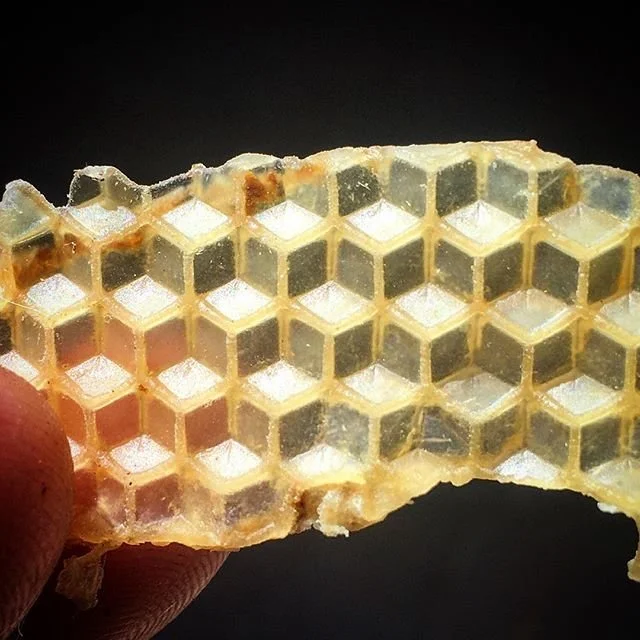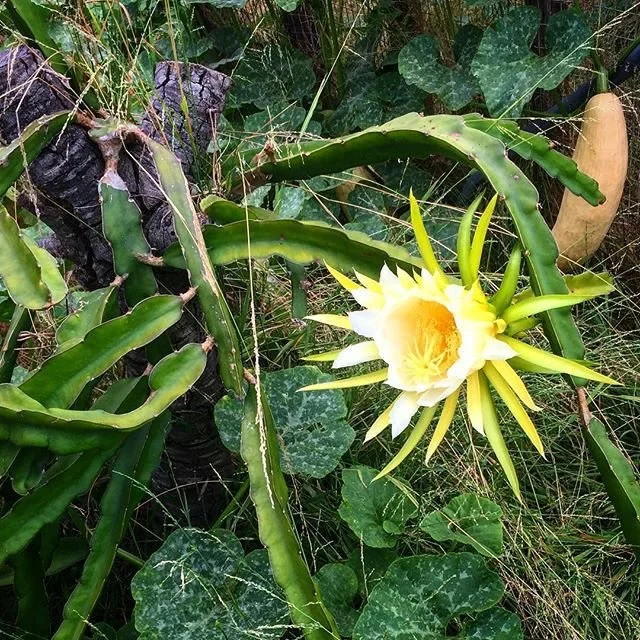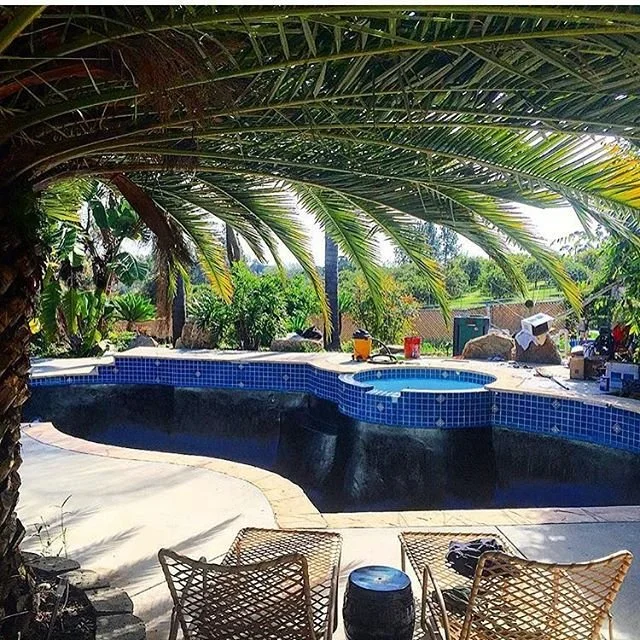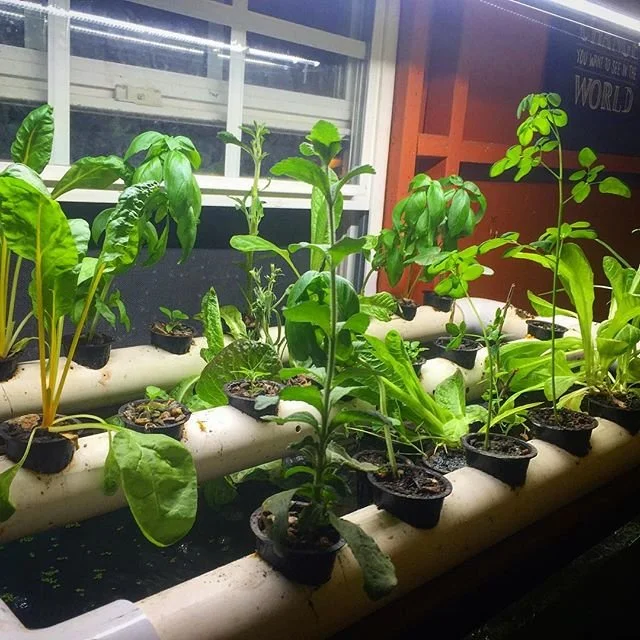An Introduction to Living Earth Systems
I’m going to try and take you on a journey of the last 30 to 40 years of my relationship with this planet. Perhaps the story will bring you closer to the understanding of where you come from and where your food comes from and what our role is as stewards of this planet. Understanding that for every action there’s a reaction and how can we govern ourselves in a direction that takes care of what takes care of us. For me it came in the very simplest way – observation, repetition and consistency.
So if we watch what’s going on around us, we create our own observational study. If we consistently try to cross the t’s and dot the i’s and make ourselves better and help other people understand, then we can truly be part of the collective consciousness that is Mother Nature. Everything seems to coincide without the need for thought.
Nature, if left to itself, is the closest thing I know to perfect. It’s us who tends to interrupt cycles of perfection in our belief that we can somehow possibly make it better or improve upon something that’s already perfect. I fail to see how we consider ourselves humble when compared to the epicness of all that is without a thought. All things exist in perfect harmony – Mother Nature, space, light, time, liquid…
I should tell you that I retired when I was seven years old. One day when I was down at the beach, I met this curious old homeless man and we had a talk about what it was going to be like when I got older and why I would want to go to work.
I asked him how much money I could make and he told me, “Maybe if you do really good, maybe you’ll make $20 an hour. Maybe you could make $100 an hour if you’re really successful at something.” I thought about what I would pay to do the thing I love to do the most – to go surfing in Fiji, eat the best vegetables, catch fresh fish and lobsters, live off the land close to nature, and just sit on the beach and do nothing and enjoy my own self. I think I’d pay least $100 an hour to do all of that. So that was my decision. I would just do those things instead of “work” because they were what I love to do more than anything else.
I did not have to save money to do any of it. I do not have a formal education. I never made it out of elementary school. My school has been nature – worms, insects, the trees.
I’ve been lucky enough to have access to remote places on the Hawaiian islands, where i have been able to observe and participate in the cycles of nature and (but I’m not gonna give the names of those places, because I’d like them to stay small, remote) and be really close to beaches. Because the ocean is a very important part of my life. My water has come from the streams and the waterfalls, my electricity has come from the sun,home made water turbines, and windmills, my food has come from the garden, the ocean, and the forest. I’ve been very lucky to choose this path of least resistance. If I can bring vegetables down and share them with people in my community then I’m on the giving end of the stick.
I’ve been told that there are three phases that we go through as humans – the first is survival, the second is acquirement, and then after acquiring enough we give back. I was lucky enough to not have to worry about acquiring in order to give back. By following the simple rules that nature set up then I could be on the giving end of the stick by planting, harvesting, foraging, and catching. Why wouldn’t I just retire and have everything I need. I can eat, I can feed other people and I can be a good steward to the planet by just paying attention to the natural cycles that are going on around me and try to actually play a part in that rather than dominate.
I think so many people mistake stewardship for domination and we think that we have to control and dominate the earth. There is no controlling nature, there’s dancing with it or playing a part with it and finding harmony. I think that’s what stewardship is about. It’s seeing the cycles, like matching two strings of an ukulele. You can find the vibration and play in tune with it and go along with what it’s doing. Then we can create this incredible paradise around us by actually taking part in a functioning universe that’s already set around us rather than having to attempt to re-create it. There’s a lot of magic that comes along with that. It is the school of nature.
I’ve learned from the patterns that exist. If you take leaves at the bottom of the lo’i (an ancient Hawaiian taro patch) and you put them in a pile next to da stream unda da tree, along with the leftover pieces of taro, afta you harvest. When you go back a month later, you’ll notice huge piles of earthworms eating it into a mass of New Earth, sustainable fertilizer. When you throw it back in the taro patch you get even better taro the next time around.
For me, hunting, fishing, surfing and gardening are a way to life. I’ve pretty much learned my way alongside nature. I’ve learned to observe the things around me so that I can get better at living as a part of nature.
I feel like I have done a pretty good job of observing all sorts of patterns and being creative. I’m able to build a solar system and understand what’s going on under the soil. In Hawaii the soil has been badly abused and it is in much need of healing via bioremediation. I have taken time to study and teach a little bit of what I have learned in the process of my own journey to stewardship.
So this is the intention of the work we are doing here. We want to cover a lot of really simple topics which seem to be really complex for people. They are actually quite simple, with a little bit of common sense. I want to share that if we start observing a little more, and showing a little humility (think humus in the soil), then we can play a good part in living on this planet. We can receive incredible benefits from Mother Nature and Mother Nature can receive incredible benefits from us. Symbiotic relationships are awesome.
In this day and age, where they claim that only 2% of the topsoil is left on the planet, if you look there are several indicators that the demise of most civilizations has come through bad soil management and horrible farming practices. We have forgotten what stewardship is. I think it’s really important that we realize through the time and all the energy that’s been spent in the last, I don’t know how long we’ve been on the planet as humans, we try to learn from our mistakes. Now we’re armed with a lot of that knowledge and we have the chance to turn it around to create new earth.
We left nature for technology. We now have the chance to return to nature with technology. We have the ability to bioremediate, in a sense turn the clock backwards, and make up for the mistakes that have been made. This is our chance, in this time, to actually take on a sustainable approach into where we’re going to go and take our own freedom back.
What makes us a little different is that we’re actually trying to empower you with the tools and the knowledge to be able to be a producer instead of a consumer, to be a problem solver instead of a victim. I think it starts with an understanding that as above so below. What exist on the top exists under your feet. Hopefully we can outline some things in this book that make it clear to you that you are able to do this. That anyone of us has the ability to create for ourselves rather than be dependent upon the outside entities that are actually destroying the planet. It’s about making a choice – are you part of the solution or are you part of the pollution? How can you find your way to play a part in what you actually are: soil and stardust.
Some of the topics we’re going to cover are going to be how to build your own solar system from the bottom up, what’s happening under the soil (mycorrhizal, Nitrogen fixing bacteria, rhizobia…), understanding the creatures and the parts they play in building your soil and keeping it healthy, how water flows and how to plan for the future, how to build alternative structures, how to build alternative water systems, aquaponics, complete circular sustainable systems that are beautiful and also can feed you and your neighbors and create all the electricity and everything that you need.
I’m basically going to show you how to take technology back to nature, as well as some basics like how to cook what you grow (or catch), hunt, make wine, preserve food, and be completely responsible for your needs.
I’ve learned a lot from working with people that have lots of financial resources as well as people who have no money. I’ve found solutions for both situations, from using completely recycled materials to the most high-end products.
It is possible to build superior systems on both ends of the scale. Both directions of implementation are based on the skills that can be done with or without huge resources. The focus is always on more ingenuity, more observation and deciding what you want.
Keep posted for the rest of this journey…




